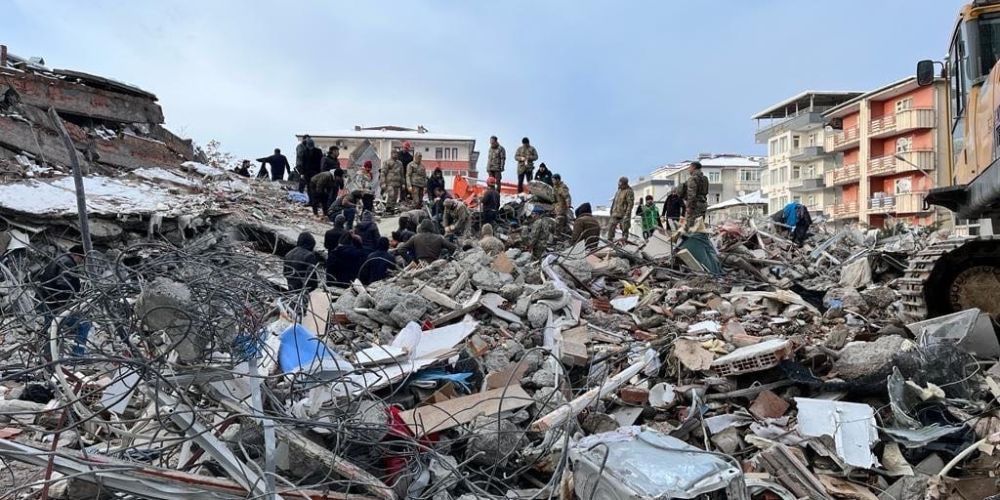A 7.8-magnitude earthquake struck on February 6 in southern Turkey, close to Syria’s northern border. A magnitude 7.5 earthquake, located about 59 miles (95 kilometers) to the southwest, was felt nine hours after this one. At least 317 aftershocks have been detected as of February 8.
The earthquake, which was as powerful as the one in 1939, the most powerful ever recorded there, was the most damaging to strike Turkey in more than 20 years.
The initial earthquake was located close to Gaziantep, which is located in south-central Turkey and is the base for numerous humanitarian aid groups as well as thousands of Syrian refugees. Global governments sent out rescue teams and offered relief right away in response to calls for assistance from other countries. The United Nations refers to Turkey as Türkiye when speaking English.

One of the most serious humanitarian crises in the world is currently occurring in Syria, and the earthquake will just make things worse and expose more dangers. The fact that the government does not fully control Syria’s northwest, which was the region most severely affected by the earthquake, presents a challenge in estimating the death toll and response activities.
4.1 million people in northwest Syria already rely on humanitarian aid, the bulk of whom are women and children. While other nations have pledged to support Turkey, it may be more challenging to send relief to impacted Syrians because the nation is not governed by a single entity. Support for the most impacted areas of Syria will be essential, though, as the current humanitarian response is severely underfunded and has a funding deficit of 48% for the final quarter of 2022.
One of nature’s most dangerous risks is earthquakes. The two main fault zones in Turkey make the area one of the most seismically active in the world. Natural hazards only become disasters when they interact with a human society or community, referred to as vulnerability in disaster studies.
Vulnerability in this tragedy may be seen in the poorly built structures that do not adhere to contemporary earthquake building standards, the thousands of Syrian refugees living in Turkey or the displaced people living in unofficial settlements in northwest Syria, the destruction of infrastructure within Syria as a result of years of war and aerial bombs, the ongoing complicated humanitarian crisis in Syria as a result of the fighting, and a cholera outbreak.
Because of these factors, the earthquake that ravaged Syria and Turkey cannot be referred to be a “natural tragedy.” Natural disasters like earthquakes are unavoidable, but their effects on society are not. By advocating for safe building construction, supporting risk communication campaigns, investing over the long term to ensure a full recovery that incorporates risk reduction, and bolstering preparedness and resilience, funders can help lessen the effects of this disaster as it develops as well as additional disasters in Turkey and Syria.


